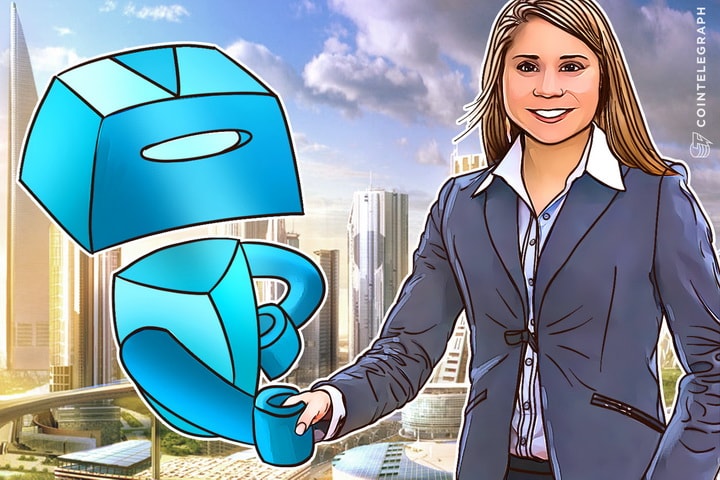India’s leading Bitcoin exchange, Coinsecure, has announced its partnership with Netki with the purpose of allowing its Bitcoin wallet users to create their own wallet names. The aim is to make the wallets easier to use and more reliable.
Many users have difficulty memorizing the address of their wallet. This problem is faced by many exchanges as, for mass adoption of Bitcoin by casual users who don’t have knowledge of cryptography to occur, there must be a simpler way of presenting the long list of numbers that is a wallet address.
Cointelegraph reached out to Global Business Development Head at Coinsecure, Elizabeth McCauley, asking for her thoughts on the matter.
CT: Will it be possible for users to create a wallet name without using their real name?
Elizabeth McCauley: A person can create whichever ID he would like as long as the name is still available.
CT: Will it be possible to create separate wallets for different functions?
EM: One can only create 1 coinsecure wallet name and 1 coinsecure exchange wallet name, i.e. 2 with single email id. However, someone could have different Netki wallet ids if using different domains - ie: two different wallet companies utilizing Netki's service.

Growing prominence in India
CT: What does Bitcoin adoption and trading look like in India?
EM: BTC adoption is growing in India. Coinsecure currently has the largest volume for an exchange in India and we are seeing over 3,000 BTC in volume each month. Lower globally, but high for India as Bitcoin is growing in prominence in India. We have been observing great volumes since September. The trading volumes for Coinsecure only have been around USD 1 million a month so the prominence is rising.
Cointelegraph also spoke to Business Development Manager at Netki, Jeffrey Handler:
CT: How does Netki solve the problem of privacy?
Jeffrey Handler: Netki uses Secure DNS(DNSSEC) to take care of name storage and mapping between a name and an address. In this way, we help preserve end-user privacy by keeping the name to address mapping off of a permanent public ledger, such as the Bitcoin blockchain. For example, if I send BTC to a Wallet Name like 'jeff.coinsecure.me', only the public wallet address associated with that name will be recorded on the Bitcoin blockchain. There is no public directory that associates Wallet Names with public wallet addresses.
Netki Wallet Names work with both HD Wallets and BIP70 Payment Requests. HD wallets (BIP32) help protect users against the privacy leaks associated with the repeated use of static addresses, by providing a way to generate a new public address (linked to a user’s private key) for each transaction that she initiates.
In this way, if I give my Wallet Name to 100 different people, 100 unique public addresses will be associated with the name, making it much more difficult for the privacy leaks that can occur with transaction link ability. Payment Requests complement HD wallets, by allowing a sender to ensure that she is actually paying the correct/desired recipient, before she permanently signs away her funds. The combination of HD wallets and Payment Requests with Wallet Names enhances privacy and security for end users, while making the process of transacting more human friendly / trustworthy to less technical users.
Moreover, Netki has created, and open-sourced a service, Addressimo, which makes it easy for wallet providers to add BIP32 and BIP70 extensions to their platform. Netki has also, in conjunction with Breadwallet, published BIP75, which extends BIP70 payment requests to work more securely with mobile and desktop wallets.

Varying levels of decentralization
CT: Is the Wallet Name Service decentralized?
JH: Netki offers services to partners and consumers with varying levels of decentralization. In addition to traditional ICANN domains, we support the Namecoin blockchain offering domains anchored in the decentralized Namecoin blockchain. This provides users with full, censorship resistant control of their domain.
Distributed DNS with DNSSEC provides mapping between a name and address and protects end-user privacy by ensuring that the name to address association is not recorded on a public ledger. BIP32 addressing or BIP70 Payment Requests and BIP75 enhancements provide additional security and privacy for consumers.
CT: Will this come with extra charges for the customer?
JH: While Netki cannot prescribe how partner companies ultimately handle their internal billing, to date, all Wallet Names that are generated for users via a partner company integration, such as Coinsecure's, are given to users free of charge. We anticipate that this will continue to be the case.
In conclusion, the partnership intends to please customers, and ultimately make the use of cryptocurrencies more mainstream.


